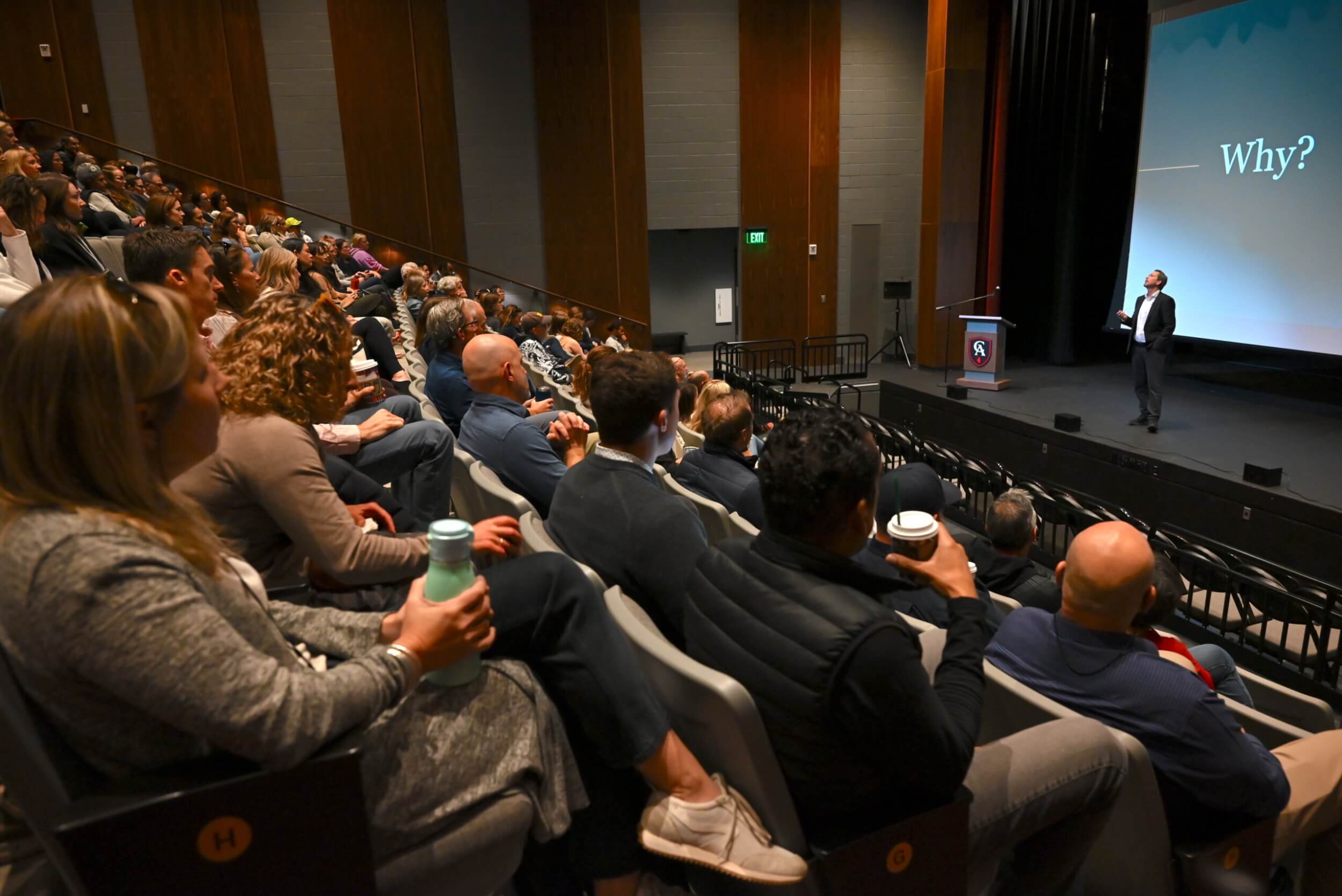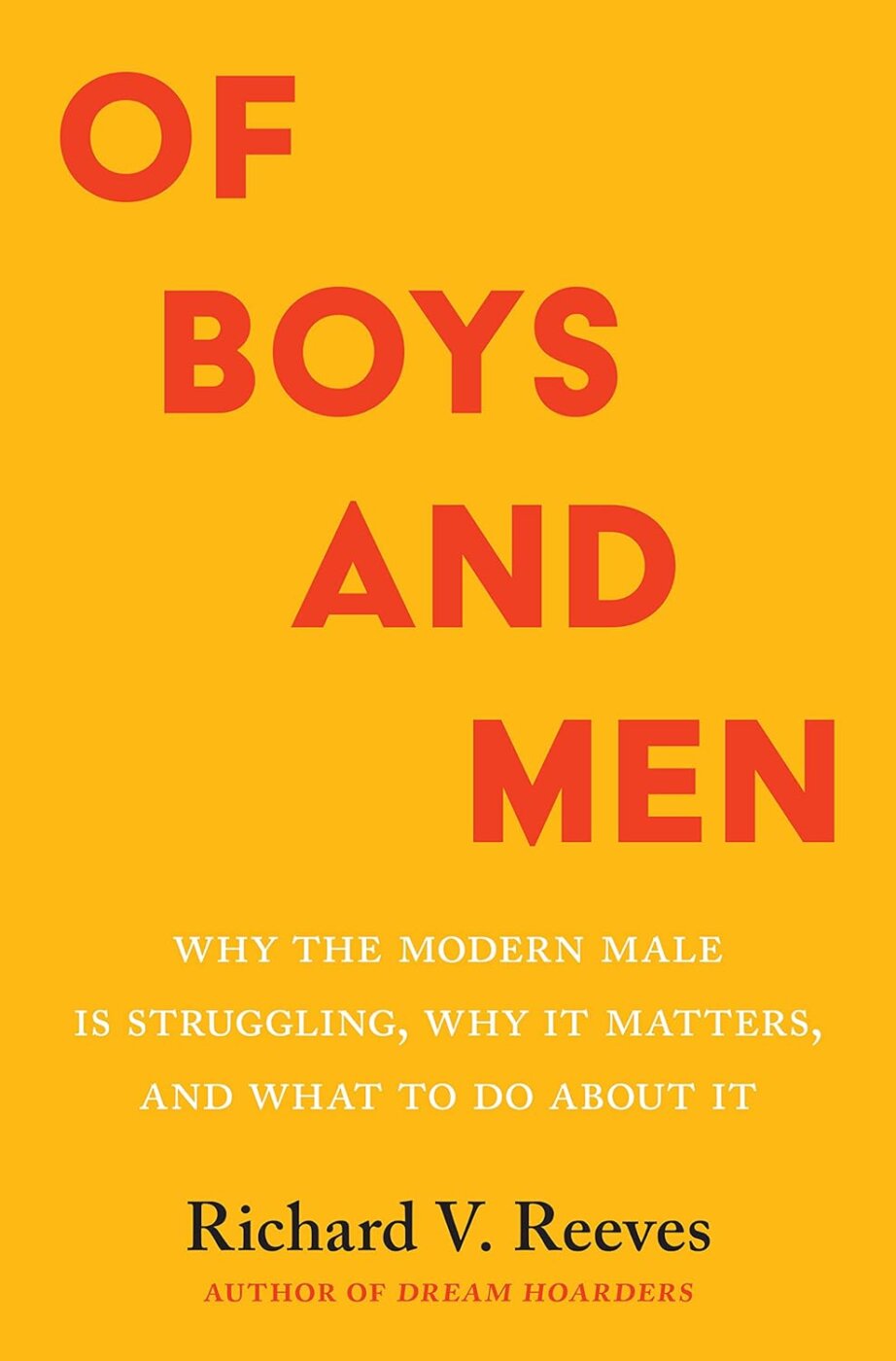
An informed and engaged audience of more than 400 parents, caregivers, students, teachers, and guests filled Colorado Academy’s Leach Center for the Performing Arts on November 8 to hear Richard Reeves, a Brookings Institution Scholar who is the author of Of Boys and Men: Why the Modern Male Is Struggling, Why It Matters, and What to Do about It.
In his talk, part of the 2023-2024 SPEAK (Series for Parent Education About Kids) lecture series, Reeves explored recent data suggesting that economic and social changes have resulted in an urgent crisis of boyhood and manhood, and he proposed several solutions that might start to address it. Reeves’s sometimes surprising arguments sparked reflection, questions, and lively discussions among listeners that will no doubt continue long after the event’s conclusion.
An avowed feminist, Reeves staunchly defends the societal, legislative, and economic changes that have brought women around the world what may be “the most profound liberation in human history.” At the same time, he suggests that modern males are suffering, and that a reluctance to support them through research and action has resulted in a dangerous vacuum in our culture.

“Too often the discussion about gender is framed as zero-sum,” he told the CA audience. “So the mere fact of drawing attention to the issues of boys and men is seen as backing away from the necessary, ongoing work we need to do for women and girls.”
“But men are facing real problems,” Reeves went on, “and only by thinking two thoughts at once—moving beyond the zero-sum argument that you can’t advance the welfare of both females and males at the same time—can we ever make progress that’s so badly needed.”
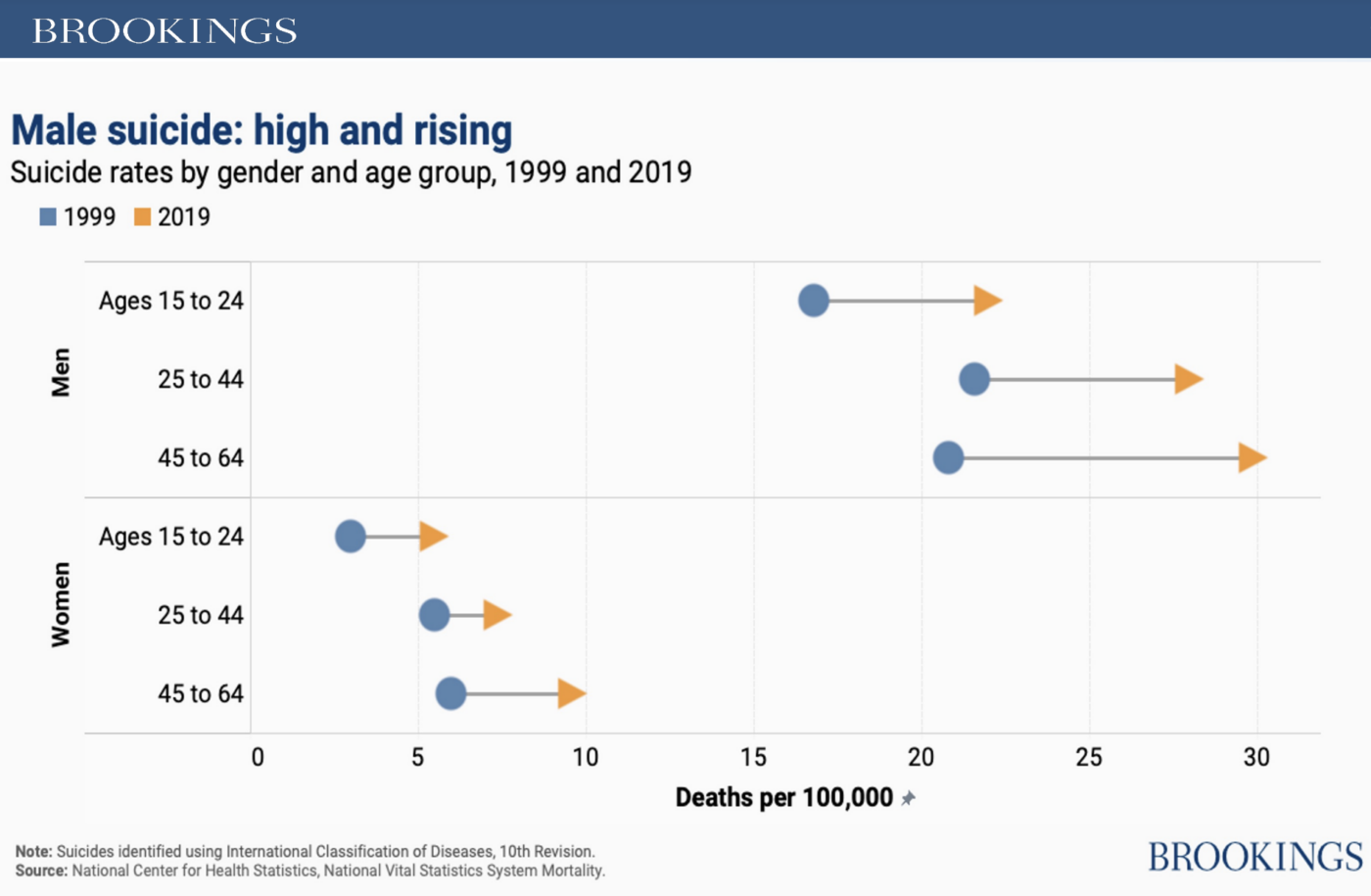
Reeves methodically laid out his arguments in support of boys and men, starting with the shocking statistic that in the United States, men are four times more likely to commit suicide than women. “There is a mental health crisis among men,” he explained, “just as there is the crisis that’s been so well documented among our young women and girls.”
At the same time, men and boys are falling behind in the educational system, with their performance in school dropping steadily over time and their population on college campuses and graduation rates in decline. “Girls have overtaken boys academically across the U.S.,” he reported, “and of the top 10% of high school students nationally, two thirds are girls.”
Reeves attributes much of this trend to an educational system that favors girls, whose frontal cortex—the part of the brain most responsible for impulse control, goal-setting, and learning—develops faster than boys’. “Girls get their act together earlier,” he underscored, “and if you have an education system that rewards having your act together, of course, they’re going to do better.”
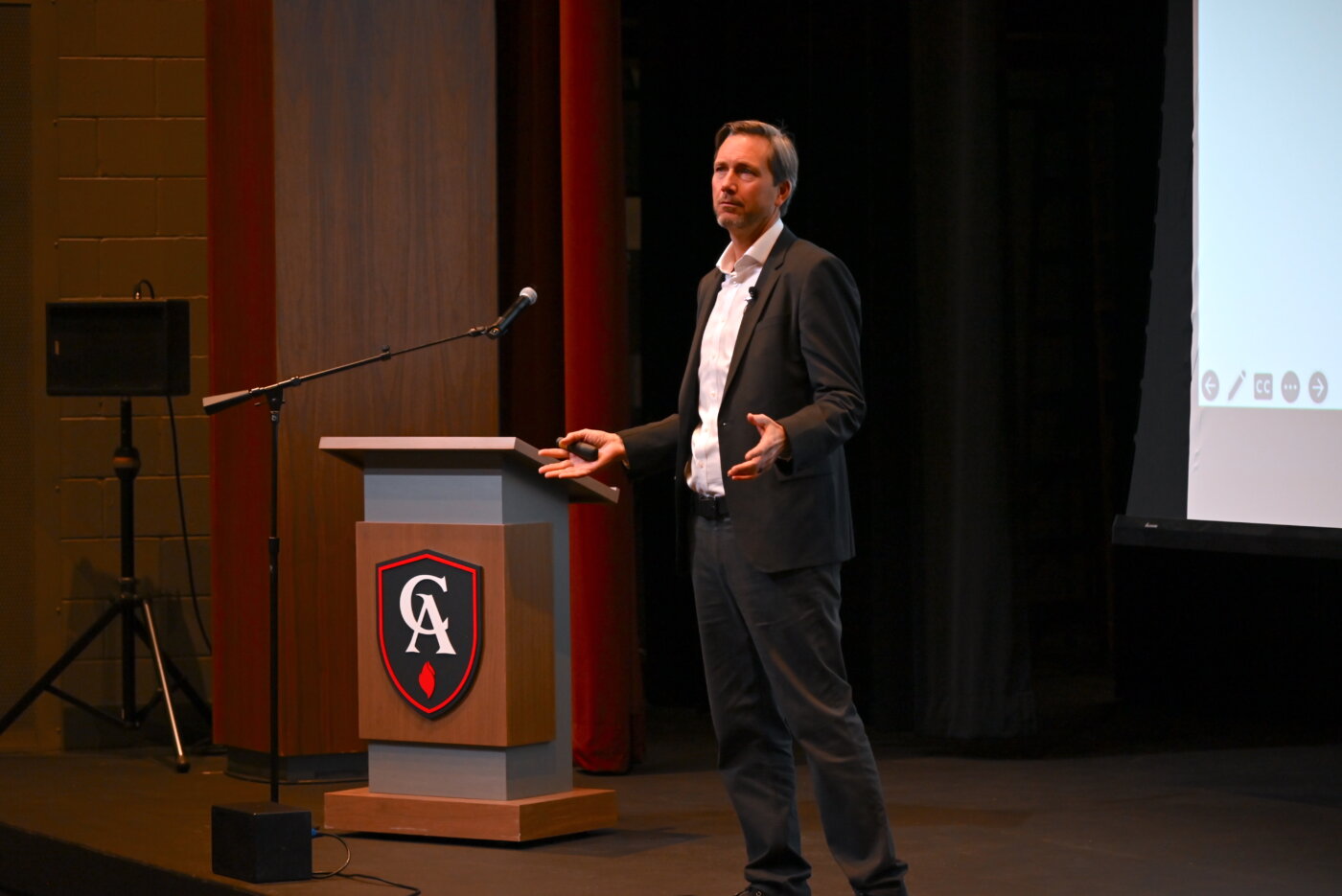
Pair this understanding with the realization that fewer and fewer men are choosing careers in education, and the problems for boys in school look even worse.
In the world of work, as well, Reeves went on to argue, the declining number of men in the professions he labels as HEAL—health, education, administration, and literacy—and the parallel rise in women’s presence in nearly every profession have caused many to ask, “What are men for?”
“With single parenthood now massively more common for women, and gains in women’s wages now offering them unprecedented independence, what is men’s role?” Reeves asked listeners.
He provided a number of possible answers to that question.
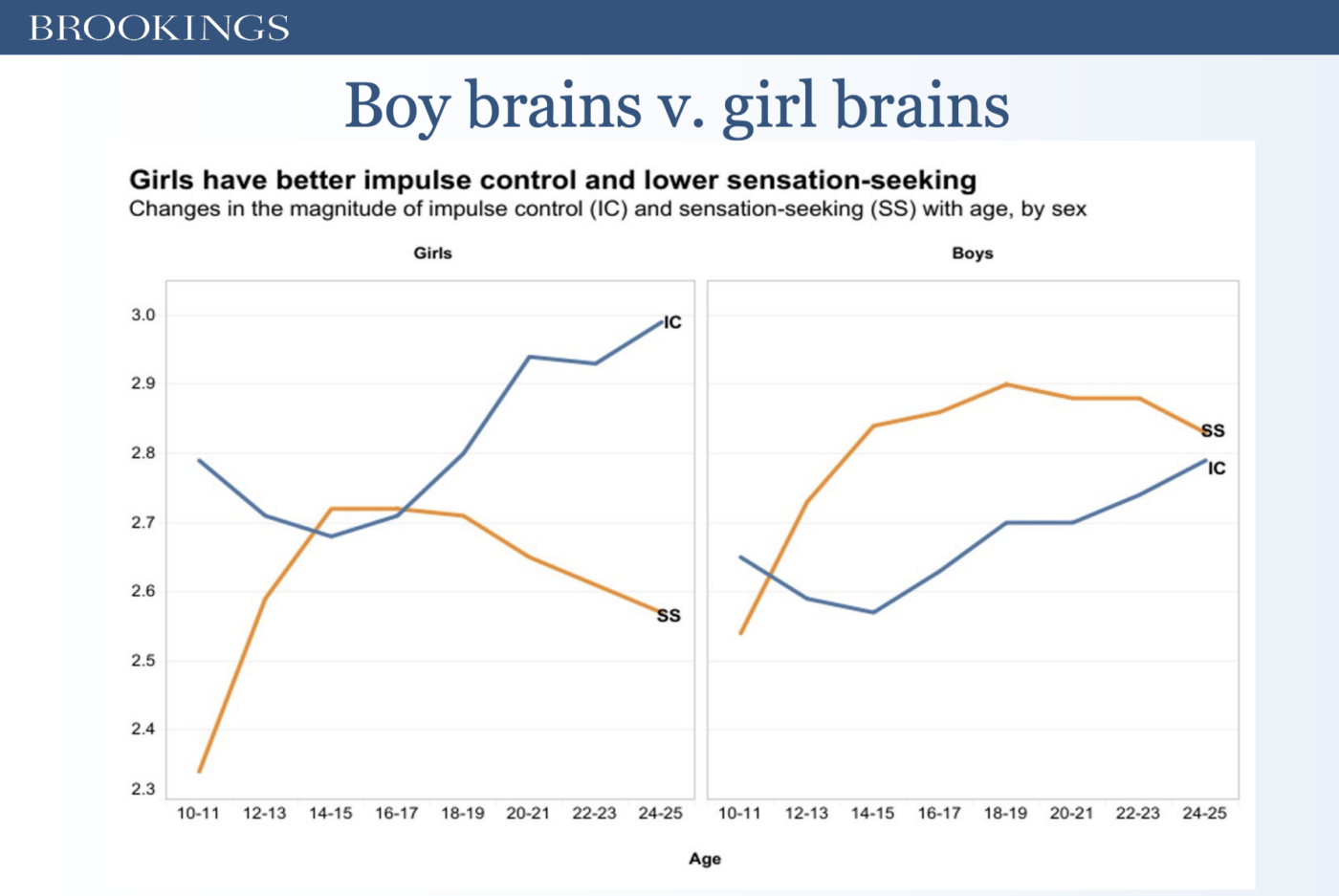
The first tries to address the differing developmental rates of boys and girls through “academic redshirting”—waiting an extra year before starting boys in school. “Boys develop the skills they need to succeed in school at least a year later than girls,” Reeves explained, “so why not give them an extra year before they go to Kindergarten?”
Reeves proposed that finding ways to encourage more men to enter HEAL professions, especially education, would also help, as would a greater focus on vocational education, which is seen as friendlier to males.
And on college campuses, Reeves suggested, where women’s resource centers are ubiquitous, increased investment in support for men is more important than ever.
“Above all, we should be confident enough in our commitment to gender equality that we should be able to celebrate the things that men and boys bring to the world,” Reeves said, “and recognize when they need help, too.”
Men, he concluded, have seen their traditional “script”—earning a wage and providing for a family—torn up. “Husband, father, breadwinner used to be a sort of package deal,” Reeves explained. “But that’s not the world we live in anymore. And we’re just in the early stages of renegotiating what it means to be a father now, to be a partner, to be a successful man. Though we don’t have great answers to these questions yet, it’s up to us to try to find them.”
